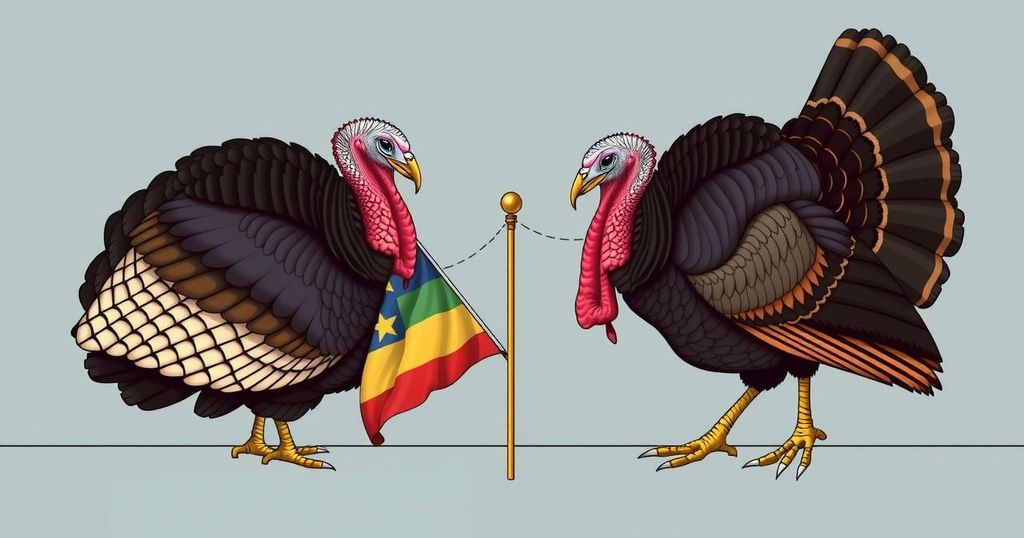Ethiopia and Somalia have reached a diplomatic agreement to end a nearly year-long dispute, facilitated by Turkish President Recep Tayyip Erdogan. The tensions originated from Ethiopia securing a maritime agreement with Somaliland, exacerbating territorial conflicts. Political analysts suggest this development may enhance stability and cooperation in the region.
Ethiopia and Somalia have successfully negotiated an agreement to resolve a protracted dispute exacerbated by Ethiopia’s pact with Somaliland, which allowed the landlocked country to access maritime trade routes. This diplomatic breakthrough was facilitated by Turkish President Recep Tayyip Erdogan, emphasizing Turkey’s growing role in regional mediation. Analysts, including Martin Oloo, suggest that this development may stabilize relations between the two nations, which have faced challenges stemming from territorial claims and economic competition as they seek to enhance their geopolitical positioning.
The longstanding tensions between Ethiopia and Somalia primarily stemmed from Ethiopia’s earlier agreements with Somaliland, a self-declared independent region of Somalia. These agreements were perceived as encroachments on Somalia’s sovereignty, further straining the relationship between the two nations. Turkey has actively engaged in mediating disputes in the Horn of Africa, which has historically been a region marked by instability and competition for resources among neighboring states. The involvement of Erdogan indicates a shift in diplomatic dynamics within the region.
The recent agreement between Ethiopia and Somalia represents a significant step towards peace and collaboration, potentially ending a year of heightened tensions. The mediation by President Erdogan not only showcases Turkey’s influence in African diplomacy but also highlights the necessity for regional players to collaborate on pressing challenges. As both countries aim to foster a more stable and cooperative future, this agreement may set a precedent for resolving similar conflicts in the region.
Original Source: www.dw.com






